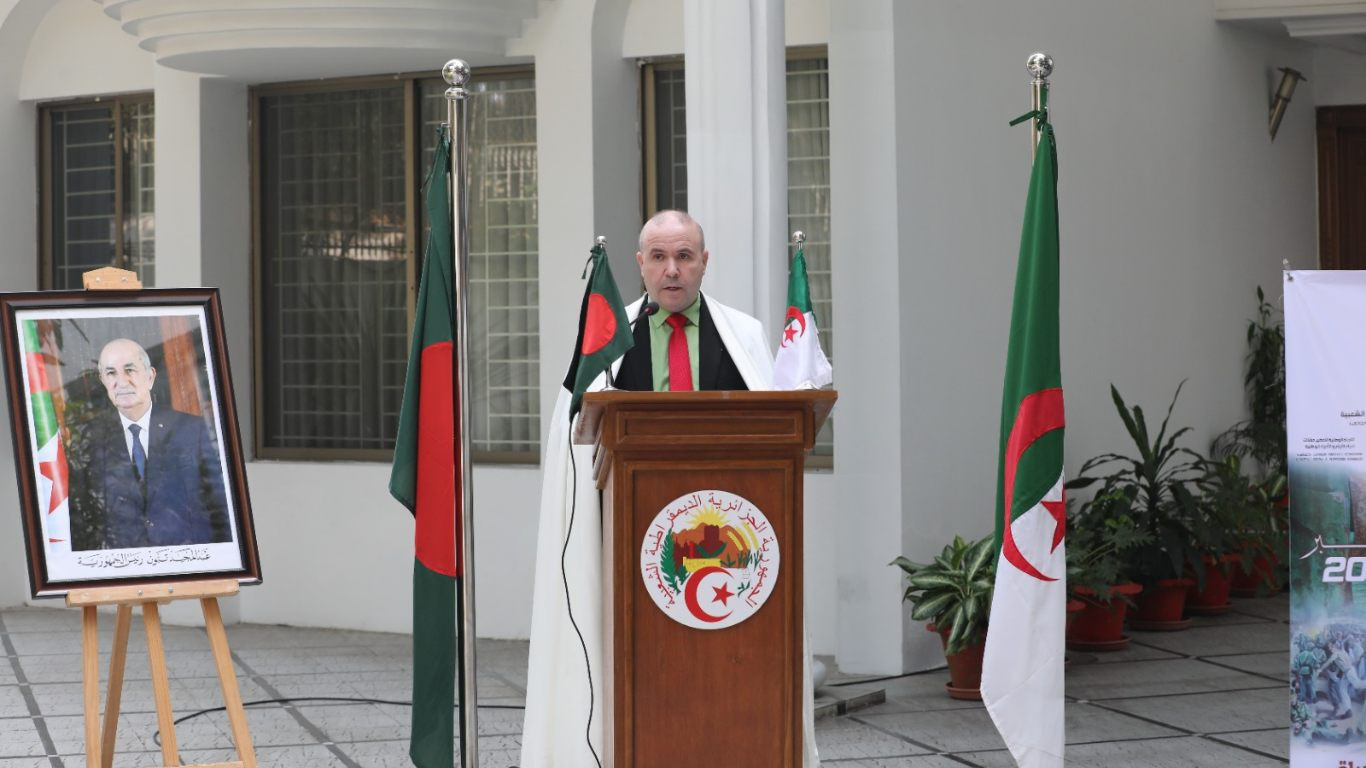Diplomatic Correspondent
Published:2024-12-12 06:21:51 BdST
Algerian people rose on 11 Dec, defending country, its sovereignty
Ambassador of Algeria to Bangladesh, Dr Abdelouahab Saidani, recalled how his countrymen rose in counter-demonstrations to defend their country and its sovereignty in the face of French aggression.
He came up with the observation while addressing a programme on the 64th anniversary of the demonstrations of 11 December 1960, one of the most impactful events in Algeria’s history and turning point in the liberation revolution.
Describing the background of the event, Saidani said the people’s uprising took place during French President Charles De Gaulle’s visit to Algeria from 9 to 12 December when he tried to rally support for preserving the political and economic interests of France, keeping the FLN (National Liberation Front), the legitimate representative of the Algerian people, away from any negotiation related to the future of Algeria.
“The European supporters favoring the idea of “French Algeria” and their sympathy in this regard have met Gaulle with rejection, anger and strikes. In reality, this project provoked a feeling of humiliation among French and European settlers. In retaliation, attacks were targeted against the indigenous people,” Ambassador Saidani said.
“In this context, the Algerian people rose on 11 December 1960 in counter-demonstrations, defending their country and its sovereignty. It was in the Capital Algiers, more precisely in Belkourt district, that the first revolts broke out on 11 December.”
According to him, the demonstrations spread like wildfire to the other cities were dealt with brutality and caused deaths of over 100 people and injuries or disappearance of over 1,000 people.
The Algerian people, however, succeeded in upsetting the colonial order, expanding the battle field to the cities. Consequently, pressure on the mujahedeen in the mountains and deserts eased and the French forces were disintegrated and their arsenal war failed.
“It was during these demonstrations that the first Algerian flag was raised. The flag composed of red star and crescent that mobilises the bloodshed from the martyrs, on white and green background, symbolising peace and freedom,” the ambassador added.
They forced the French President De Gaulle to withdraw his project of the third way and return to France, admitting that the situation was not according to what he had anticipated.
De Gaulle was forced to give up on his idea, deciding to start negotiations with the FLN. These demonstrations were a huge shock for De Gaulle and the European supporters of a French Algeria.
“Many historians of the liberation war have described the demonstrations of 11 December 1960 as a pivotal stage in the course of the Algerian Revolution and an explicit expression of the Algerian people’s rejection to any option other than total independence,” Saidani said.
He reminded that De Gaulle’s visit coincided with that years UN General Assembly, which adopted two Resolutions with a bearing on the Algerian issue: Resolution 1514, the UN Declaration on the Granting of Independence to Colonial countries and Peoples (adopted on 14 December), and Resolution 1573, on Algerian self-determination (19 December), which recognised the right of self-determination as the only basis for the solution of the Algerian matter, the ambassador added.
Unauthorized use or reproduction of The Finance Today content for commercial purposes is strictly prohibited.


